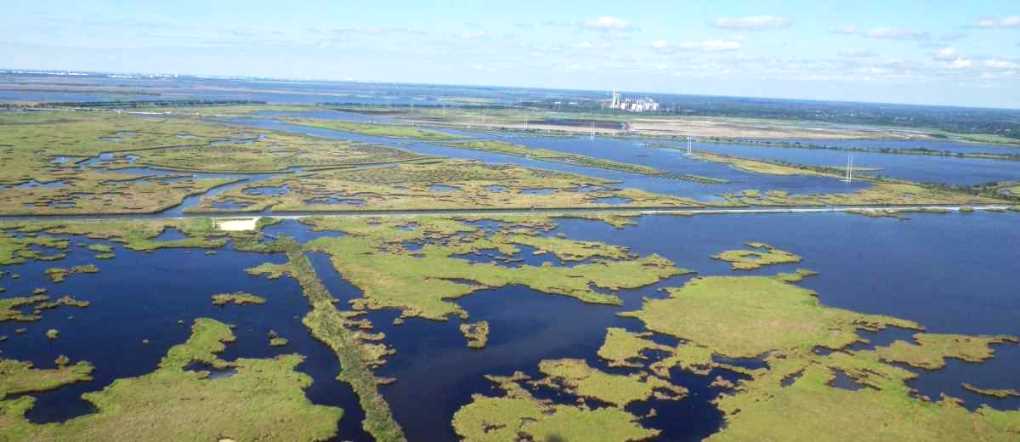In March of 2019, Ducks Unlimited and the U.S. Fish and Wildlife Service (FWS) partnered to undertake $25.8 million in restoration work that will enhance over 60,000 acres of coastal marsh on three Texas national wildlife refuges.
“We’ll be working with the FWS to repair, replace and strengthen wetland management infrastructure damaged by Hurricane Harvey on McFaddin, Texas Point and Anahuac national wildlife refuges,” DU Manager of Conservation Programs Todd Merendino said. “In addition to improving habitat management capabilities, these projects will improve public access for hunting, fishing and wildlife observation through safe, accessible structures that can withstand increasing use by the public and better weather future storms.”
Shoreline protection and wetland management infrastructure projects will address erosion loss and damage to levees and water-control structures that occurred in Jefferson, Chambers and Galveston counties.
For example, a bank along McFaddin National Wildlife Refuge maintains a barrier between the largest contiguous intermediate marshland complex in the state and the Gulf Intracoastal Waterway. Damages to the bank are threatening this important marsh ecosystem with saltwater intrusion. Two of the levees to be repaired also provide walk-in access to hunters and anglers.
“Ducks Unlimited has a proven track record for on-the-ground wetland restoration projects,” Texas Chenier Plain National Wildlife Refuge Complex Manager Tim Cooper said. “We have worked with them on many projects to improve wetlands in the Lone Star State, and we are proud to continue this productive partnership for the wildlife and people who depend on and enjoy these areas.”
McFaddin, Texas Point and Anahuac national wildlife refuges attract more than 400,000 visitors from all over the world and are critical economic drivers for local communities. In 2011, the economic impact of Anahuac and McFaddin on local communities was estimated at more than $3 million annually. Duck hunting and fishing are significant public uses at all the affected refuges.
“Wetlands provide many functions and values necessary for sustaining wildlife and fishery resources, local communities and ecosystems,” Cooper said. “These marshes are important habitat for migratory birds, fish, shellfish and other wildlife.”
The buffering effects of coastal marshlands in this area help to protect strategic and economic resources such as the shipping channel, communities and energy infrastructure.
“Ducks Unlimited is mission-focused on waterfowl habitat, but the wetland restoration and protection work we do has benefits far beyond waterfowl and those who enjoy them,” Merendino said. “For example, McFaddin National Wildlife Refuge is adjacent to the Big Hill Strategic Petroleum Preserve. Immediately inland, the communities, businesses and petrochemical facilities of Sabine Pass, Port Arthur and Beaumont are buffered by the storm surge reduction associated with healthy marshes.”
These projects will be completed in phases over the next three years in coordination with the FWS, Texas Parks and Wildlife Department, Texas General Land Office and the U.S. Army Corps of Engineers.
Photo of degraded coastal marsh courtesy of Ducks Unlimited.

